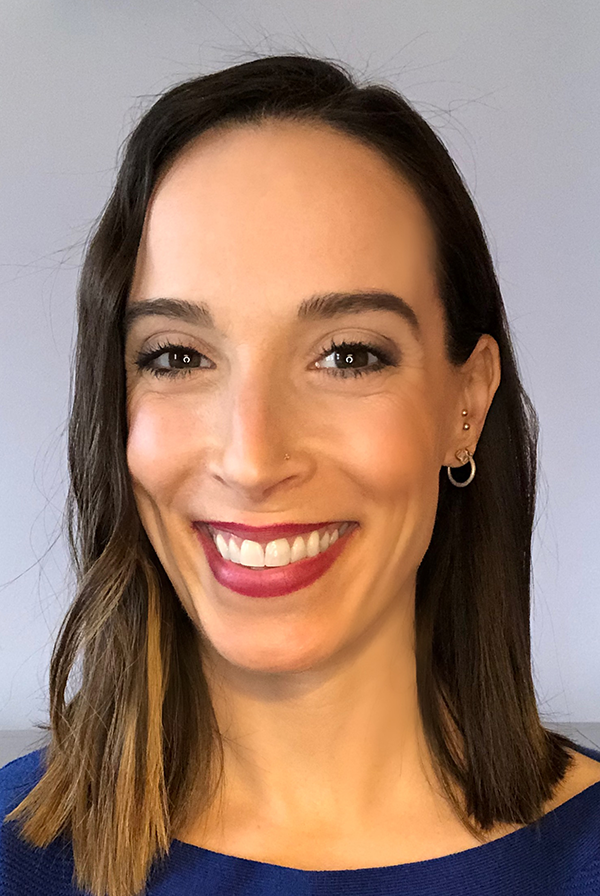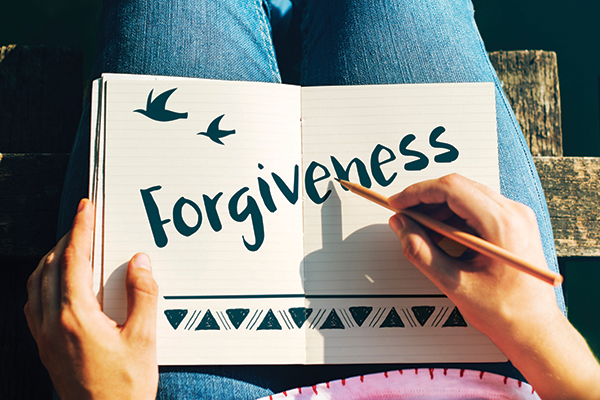Transform Your Hurt into Healing
Cultivating Self-Forgiveness after a Cancer Diagnosis
by Kristy Case, LCSW, OSW-C
“Why did this happen to me?”
At some point during your cancer experience, you will ask this question. You may ask it aloud of one of your healthcare providers. Or you may quietly ruminate on it, searching internally for an answer.
It’s natural for people facing cancer to search for answers to this question in order to find some sense of control in what feels like an uncontrollable situation. It’s easy to think that if you can figure out what caused the problem, then you can fix the problem. This leads to many cancer survivors questioning whether certain life choices contributed to their having cancer: Was my lifestyle too stressful? Maybe it was my divorce? Did I not exercise enough or not eat enough vegetables?
All this questioning can lead people with cancer to experience self-directed shame, blame, and punishment for not doing enough to prevent their (largely unpreventable) cancer. But what can you do when your mind starts going down this harmful path?
The answer is a simple one, but it’s not exactly easy. You can learn to forgive yourself. After all, self-help experts, and society at large, repeatedly espouse the benefits of forgiving others. Why not direct that forgiveness toward yourself as well? Cultivating self-forgiveness is the first step to ending the spiral of self-directed shame, blame, and punishment many cancer survivors find themselves in.
What You Should Know about Self-Forgiveness
Cultivating self-forgiveness is an ongoing process that will bring up a variety of feelings. Let’s face it, most people would rather skip right to the forgiveness part and bypass the anger, resentment, ruminating thoughts, and second-guessing that often come before it. However, self-forgiveness often only comes about when anger has had its opportunity to be processed and is ready to transform into something more calm, like forgiveness.
Cultivating self-forgiveness is the first step to ending the negative spiral of self-directed shame, blame, and punishment many cancer survivors find themselves in.
Part of cultivating self-forgiveness includes being open to learning from past experiences and figuring out what is no longer working. Maybe you didn’t eat enough vegetables or get enough exercise before your diagnosis and now you want to. Moving forward with a new plan of action, instead of obsessing over what you could have done better in the past, is a form of self-forgiveness. Most people are motivated by gentleness and compassion, not through punishment. Blame and shame are forms of emotional punishment. So, to continue on with self-forgiveness, you must let go of the blame and shame and instead treat yourself with gentleness and compassion.
How You Can Start on the Path to Self-Forgiveness
There are a variety of ways in which to begin and keep going on the healing path to self-forgiveness. Here are a few:
• Journal. You may want to use your journal to answer questions such as, How would my life be different if I forgave myself for my past choices? How have I forgiven others, and can I apply that language or behavior to myself?
• Cultivate gratitude. Surely you have done, or are doing, things you are proud of or feel good about. Practicing self-gratitude can help shift your focus to what is going well in your life. This can be something as small as “Today, I took care of myself by going for a walk.”
• Create an environment filled with loving and forgiving messages. Look for inspirational quotes in books, in magazines, or online. Fill your space with things that remind you of softness and love.
• Adopt a mantra. A quick and easy-to-remember phrase is a great tool you can use to disrupt ruminating thoughts. A couple examples are “I forgive myself today” or “Progress not perfection.”
• Develop a ritual. Self-forgiveness rituals may include placing your hand over your heart for a brief moment every day or lighting a scented candle. You can even set cell phone alerts that send you loving reminders throughout the day.
Cultivating self-forgiveness can lead to more effective coping and healing as you go through the cancer experience. There are many ways to transform your hurt into healing. Too many to list here. I encourage you to explore different avenues of self-forgiveness until you find what works for you.

Kristy Case is an oncology clinical social worker at her local cancer center. She is a therapist in her private therapy practice and also a trained Vinyasa Yoga instructor and Reiki practitioner.
This article was published in Coping® with Cancer magazine, September/October 2021.


